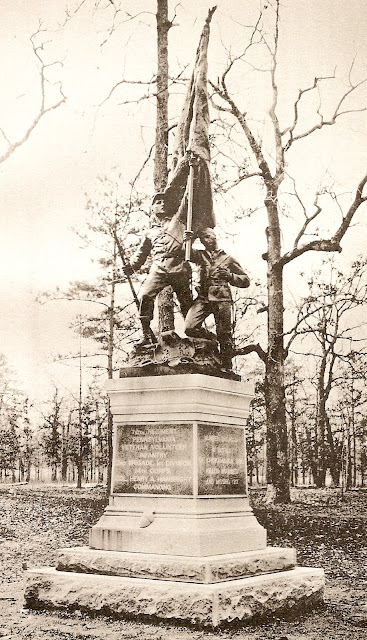This blog attempts to chronologically retell the stories week-by-week that I've come across while researching the Lancaster County Regiment. I expect it to be a rather raw amalgamation of primary sources, almost like I would be inviting you to watch as I gather research notes for a regimental history. My hope is that the stories and historical drama contained therein fascinate you like they fascinate me.
 | |||
| Flag presented to 79th Pennsylvania in May 1865 (PA Capitol Preservation Committee) |
Why the 79th Pennsylvania?
Although the 79th Pennsylvania's story is similar to many other three-year regiments who answered President Lincoln's call in the summer of 1861, the first thing to notice about the 79th Pennsylvania is that the regiment fought in the war's Western Theater from October 1861 until the war's end. At places with names like Perryville, Chickamauga, and Bentonville, the regiment suffered substantial losses but earned a reputation as well-disciplined and solid in battle. The second thing to notice is that nine of the regiment's ten companies hailed from Lancaster City or County. With that said, here's my attempt to explain why it's worth focusing on the regiment for a blog.
- The 79th Pennsylvania was Lancaster's most focused military contribution to the war effort, with Col. Hambright being the county's main war hero with a public presence in Lancaster. Social and political connections between battlefield and home front also ran deep for the entire war. For example, we can watch Capt. William McCaskey and civilian J.P. McCaskey talk at length about their respective efforts to advance the candidacy of Governor Andrew Curtain and President Lincoln during the elections of 1863 and 1864. Furthermore, the regiment's division commander, Maj. Gen. Lovell Rousseau, even visited Lancaster and give a public address in early 1863 a couple months after the Battle of Perryville.
- The fact that ~90% of the regiment came from Lancaster County--a mid-sized town with a handful of newspapers (including three daily papers eager to print soldiers' letters) but not a lot going on--means it's relatively easy to find rich primary source content, especially when it comes to the interplay between the regiment and the people in Lancaster.
- I've found the Civil War's Western Theater to actually be more interesting than the Eastern Theater. Lots of land over which to maneuver, railroads to defend, and territory occupied by both secessionists and unionists that made the war feel like a true civil war.
- Very little has been written about the regiment, and some of the best primary sources have been left unexplored. Approximately 150 soldiers' letters from the 79th Pennsylvania were published in Lancaster's newspapers.
- Some very interesting characters have left fantastic accounts of their war experience: William McCaskey, William Kendrick, William T. Clark, Elias H. Witmer, among others.
- The regiment, city, and county had very interesting political dynamics, with Lancaster County providing some of the strongest returns for the Republican Party in Pennsylvania and Lancaster City playing the role of Democratic stronghold. What else would you expect of the place that both James Buchanan and Thaddeus Stevens called home?
 |
| 79th Pennsylvania Monument at Chickamauga |

No comments:
Post a Comment